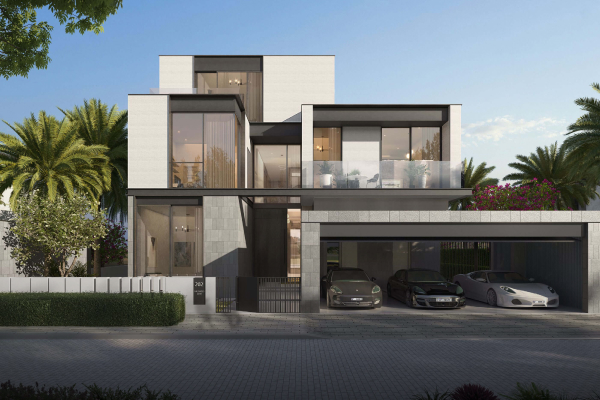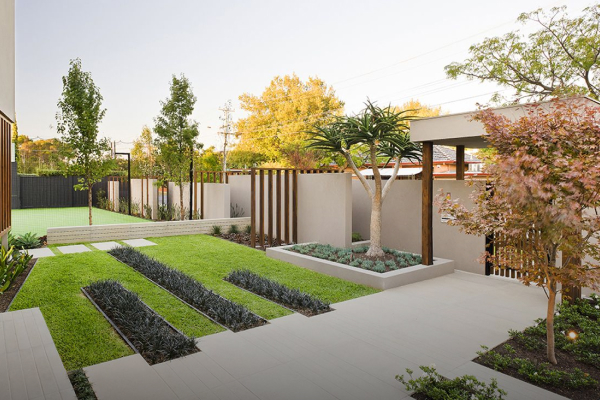Transform Your Villa: Expert Tips for Stunning Villa Renovation Dubai Homeowners Love
Every villa in Dubai has potential but not every home keeps up with time. Over the years, rooms start feeling smaller, finishes begin to age faster under the heat, and the layout that once worked no longer fits your lifestyle. Renovating a villa is a chance to bring it back to life not just to make it look new, but to make it work better.

And in Dubai, renovation is serious business. The rules are specific, materials behave differently in the climate, and the process demands patience and planning. Here’s what matters most when you start thinking about upgrading your villa from what to check before you begin to how to make sure every dirham you spend adds real value.
1. Start with a Reality Check
Before you touch a wall or pick a finish, understand what you’re working with. Older villas, especially those built before 2005, often have outdated wiring, worn plumbing, or uneven foundations. Renovation is easier and cheaper when these issues are caught early.
A professional condition survey by an architect or structural engineer helps you know the strengths and weaknesses of your building. They’ll check the load-bearing walls, columns, slabs, and service routes to see what can be kept and what must go.
This step sounds small but it prevents months of rework later. You’ll know exactly what parts of the villa can handle extensions, heavier fixtures, or design changes.
2. Know the Difference Between Redecorating and Renovating
Many homeowners start with the idea of a “minor refresh” only to realise halfway that they’re basically rebuilding. Redecorating is surface-level: painting, lighting, or new flooring. Renovation means structural or MEP changes moving walls, extending spaces, or upgrading systems.
In Dubai, the difference matters because renovation needs formal approvals. The Dubai Municipality, Trakhees, or Nakheel (depending on your location) must review your plans before work begins. Skipping this can lead to penalties or delays in getting completion certificates later.
If you’re unsure, a consultant can review your drawings and tell you whether your plans fall under interior modification or full renovation.
3. Prioritise Structural Integrity Over Style
Everyone dreams of open layouts and wide glass fronts. But not every wall can come down safely. Structural design defines what’s possible, not Pinterest.
Removing or altering load-bearing walls needs careful reinforcement. Beam placements, column adjustments, and slab thickness must be recalculated. Even a small structural oversight can create long-term problems like cracks or uneven flooring.
A qualified structural engineer ensures the design looks modern without compromising stability. This step becomes even more critical if you plan to add extra floors or expand outdoor areas.
4. Make Energy Efficiency Part of the Plan
Dubai’s weather is harsh on both people and buildings. The right renovation plan can lower cooling bills and make indoor spaces far more comfortable.
Start with insulation and glazing. Double-glazed windows, reflective paints, and roof insulation help maintain indoor temperature. Choosing LED lighting and energy-rated appliances further reduces load on the cooling system.
It’s not just about comfort, efficient design can cut annual energy costs by 20–30%. If your villa is older, re-insulating or upgrading the HVAC system can make a big difference in how the home feels through the summer.
5. Layout and Light: Rethink How You Use Space
Many older villas were designed for smaller families or with a closed-off plan. Modern living calls for connection between the kitchen, dining, and outdoor areas. But opening space isn’t only about knocking walls down.
Think about movement, ventilation, and natural light. Even a minor change, like shifting a doorway or adding a skylight, can completely alter how a space feels.
In Dubai, sunlight is abundant but strong. So, while adding larger windows may look appealing, proper shading and glass selection prevent glare and overheating. When designed right, natural light can save energy and make interiors feel much larger than they are.
6. Don’t Overlook the MEP Systems
Many villa renovations fail because the MEP (Mechanical, Electrical, and Plumbing) work wasn’t planned properly. These are the invisible systems that make your home livable yet they’re often an afterthought.
Before you start, have a full MEP inspection. Older plumbing lines may corrode; electrical panels might not support modern appliances. And poorly designed AC ducting can lead to uneven cooling or high power consumption.
A coordinated design between architects, structural engineers, and MEP specialists avoids later conflicts like ducts hitting beams or electrical points misplaced after wall changes.
7. Materials Matter Choose for Climate, Not Trend
Imported finishes look beautiful, but not all materials suit Dubai’s heat and humidity. For example, certain woods warp easily, and marble floors need sealing to prevent staining in humid months.
Use materials that combine aesthetics with durability. Porcelain tiles, engineered stone, aluminium frames, and treated woods last longer in this environment.
Also, think about maintenance. Low-porosity surfaces and heat-reflective finishes need less cleaning and stay cooler. A renovation that’s easy to maintain is one that will age gracefully.
8. Renovation Timelines: What to Expect
Renovation always takes longer than expected but knowing why helps. Approvals, material sourcing, and coordination across trades can easily stretch the schedule.
A typical villa renovation in Dubai takes around:
- 2–3 months for design and approvals
- 4–8 months for construction, depending on the scope
Add buffer time for inspections and utility connections. Starting early in the cooler months (October–February) helps avoid weather delays.
9. Managing Budgets Realistically
It’s easy to get carried away once drawings come to life. The key is to decide early what matters most: structure, finishes, or technology.
Create a tiered budget:
- Essential Works: Structure, waterproofing, MEP
- Enhancement Works: Flooring, lighting, cabinetry
- Optional Upgrades: Smart systems, automation, or landscaping
And don’t forget a contingency fund (around 10–15%) for unforeseen site issues. Renovation exposes what you can’t see from underground pipes to faulty wiring. Having financial flexibility keeps the project on track without sudden halts.
10. Working with Authorities and Consultants
Approvals in Dubai can seem intimidating, but they exist for a reason. Each authority ensures the project is safe, compliant, and suited to its zone.
Submit all design drawings, structure layouts, and MEP plans early to save time. A consultant familiar with the process can help prepare the documents correctly the first time.
And once construction begins, keep copies of all stamped plans and NOCs (No Objection Certificates). They’ll be needed again during final inspection or if you ever sell the property.
11. Blending Old and New
Good renovation doesn’t erase a villa’s character, it refines it. Maybe you love the arched doorways, or the shaded courtyards that older homes often have. Retaining such elements while improving efficiency and layout gives your villa a unique charm that newer builds can’t replicate.
Sometimes, even small updates like adding a pergola, re-tiling the façade, or redesigning the entrance can bring cohesion between old and new design elements. The best results come when renovation respects what already works and enhances what doesn’t.
12. Avoiding Common Mistakes
Many projects go off-track not because of design but because of coordination. The biggest mistakes are:
- Starting without a detailed survey
- Ignoring the approval process
- Choosing low-grade materials to save cost
- Overdesigning for the plot size
- Not aligning MEP with the layout
Every one of these leads to either rework or unexpected costs. And in renovation, rework is always more expensive than planning right.
13. Sustainability Beyond Buzzwords
Sustainability isn’t just about solar panels or recycled tiles. In renovation, it’s about designing for durability, low energy use, and easy maintenance.
Choosing LED systems, water-saving fixtures, and efficient cooling can significantly reduce the environmental footprint of your villa. Reusing structural elements or finishes where possible also cuts waste and cost.
Dubai’s Green Building Regulations now encourage energy-conscious design, so sustainable choices often make approval smoother too.
14. The Value of a Good Team
Renovation is rarely a one-person job. Architects, structural and MEP engineers, contractors, and suppliers all need to move in sync.
A strong team means fewer surprises. It also ensures the design vision matches what’s built. Inexperienced contractors may promise quick fixes but often overlook details that matter in the long run. Choosing a team with proven local experience saves time and reduces risks.
15. Looking Ahead: Renovation as Future-Proofing
A well-done renovation does more than improve how a home looks today; it prepares it for how you’ll live tomorrow. Flexible rooms, efficient systems, and smart space planning keep your villa relevant as needs change.
And when the time comes to sell, buyers in Dubai’s competitive market always prefer villas that are compliant, energy-efficient, and thoughtfully designed.
So while renovation may seem like an expense, it’s often one of the best investments you can make in your property’s lifespan.
Final Thoughts
Renovating your villa isn’t about chasing trends. It’s about creating a home that works better, cooler in summer, easier to maintain, and ready for years ahead.
When you plan carefully, respect the structure, and choose the right team, the process becomes smoother and more rewarding.
Dubai’s villas may vary in style and age, but the principle stays the same: a well-renovated home doesn’t just look different, it feels right.
Big or small, every project deserves expert attention. Reach out to Abdulla and Associate for clarity before the first brick is laid.

